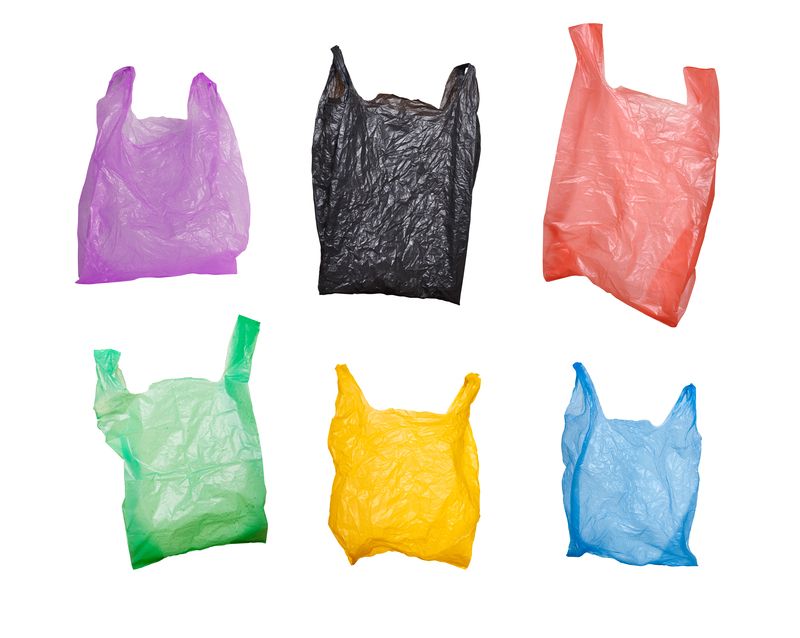Empowering Kids to Make a Difference Through Recycling
Raising the next generation of eco-conscious citizens starts with small steps at home and in schools. The concept of recycling is not only crucial for sustaining our planet, but it also offers children a unique opportunity to take ownership of positive change. By empowering kids to make a difference through recycling, we not only teach them about environmental responsibility but also nurture their leadership skills, critical thinking, and sense of global citizenship.

Why Teaching Recycling to Children Matters
As stewards of the future, children have the potential to shape a sustainable world. When they learn about the importance of recycling, they develop eco-friendly habits that can last a lifetime. Here's why encouraging kids to recycle is vital:
- Early Education Forms Habits: Introducing sustainability and recycling at a young age helps children internalize these values.
- Children Influence Families and Communities: Kids often encourage their families and peers to adopt better environmental practices.
- Recycling Builds Critical Thinking: Deciding what can and cannot be recycled teaches problem-solving and decision-making.
- Prepares Future Environmental Leaders: Today's kids will be tomorrow's policy-makers, scientists, and citizens who drive change.
The Environmental Impact of Recycling
Recycling is more than separating paper and plastic. It involves understanding the lifecycle of materials, conserving resources, and reducing the environmental footprint. Children empowered to recycle make choices that result in:
- Resource Conservation: Recycling reduces the need for new raw materials, preserving forests, water, and energy.
- Waste Reduction: Kids' active participation helps shrink landfill sizes, protecting ecosystems and wildlife habitats.
- Less Pollution: Proper recycling cuts down on air and water pollution from incineration and waste runoff.
- Climate Action: Kids who recycle help cut greenhouse gas emissions associated with waste processing.
Empowering Kids to Make a Difference Through Recycling: Step-by-Step
Empowering children to become stewards of the environment does not have to be difficult. Here are the most effective methods of empowering kids through recycling initiatives both at home and at school:
1. Start with Awareness and Education
- Discuss how the planet is affected by waste, pollution, and overconsumption.
- Explain the basics: What can be recycled? What happens at a recycling plant?
- Read books, watch documentaries, and use child-friendly documentaries to make the information engaging.
- Use clear signage and color-coded bins to make recycling routines easy and rewarding.
2. Make Recycling Fun and Interactive
- Set up a home or classroom recycling station. Let kids label bins and decorate them with art.
- Play recycling games like "Which Bin Does It Go In?"
- Create crafts and upcycling projects from discarded materials: bottle cap mosaics, carton planters, or plastic bag rope.
- Host recycling competitions or challenges to see who can save the most waste.
3. Connect Recycling to the Real World
- Take field trips to local recycling centers so kids can see the process up close.
- Invite guest speakers (waste management professionals, environmental activists) to speak at schools and libraries.
- Show children products made from recycled materials and discuss the closed-loop economy.
4. Encourage Leadership and Responsibility
- Assign recycling "monitors" in classrooms or at home. Give kids specific tasks, like collecting paper waste or rinsing containers before recycling.
- Involve children in local clean-up events or environmental clubs.
- Support kids to propose recycling improvements at their school or local community center.
- Recognize and celebrate achievements, such as "Recycler of the Month."
Benefits of Empowering Kids Through Recycling Activities
When children actively participate in recycling initiatives, they not only help the environment but also develop valuable life skills. Here's how:
- Self-Esteem and Confidence: Kids who contribute to big causes feel a strong sense of accomplishment and pride.
- Collaboration and Communication: Team-based recycling activities foster cooperation, leadership, and negotiation.
- Respect for Diversity: Learning about environmental issues worldwide and how different cultures recycle broadens horizons.
- Scientific Curiosity: Recycling encourages inquiry, experimentation, and learning about materials' properties.
Practical Recycling Tips for Families and Teachers
Ready to get your kids started? Here are actionable family and classroom recycling ideas that boost engagement:
At Home
- Create a Recycling Chart: Track weekly progress with stickers or colored markers.
- Meal Prep with Less Waste: Choose reusable lunch containers and compost scraps together as a family.
- Shopping Smart: Involve your kids in buying items with recyclable or minimal packaging.
- DIY Upcycling: Challenge kids to repurpose old clothes, jars, or cardboard into useful items or toys.
- Community Drops: Organize a family outing to a recycling facility or electronics drop-off.
In the Classroom
- Incorporate Recycling in Curriculum: Link recycling themes to science experiments, art classes, and writing assignments.
- Student-Led Initiatives: Allow kids to design posters and lead awareness campaigns in the school.
- Celebrate Recycling Days: Host events during Earth Day or World Environment Day focusing on student participation.
- Compost Together: Start a compost pile or worm bin as a biology project.
Motivating Kids: Overcoming Common Challenges
A few obstacles can arise when empowering children to recycle, but with perseverance and creativity, they can be overcome:
- Confusion Over Recyclables: Frequent reminders and visible charts help clarify what goes where.
- Lack of Interest: Inject fun - through games, competitions, and themed days - to spark engagement.
- Limited Access: If community recycling isn't available, focus on upcycling or collecting recyclables for drop-off programs.
- Peer Pressure: Highlight the importance of standing up for the environment and share inspiring stories of youth changemakers.
Stories That Inspire: Kids Around the World Making a Difference
There are many inspiring stories of kids empowered by recycling to create real-world impact:
- Ryan's Recycling: Ryan Hickman from California began recycling at age 3 and has recycled millions of bottles and cans since then, donating proceeds to environmental causes.
- The Bye Bye Plastic Bags Campaign: Two sisters from Bali, Melati and Isabel Wijsen, led a youth-driven movement that ultimately pushed the island to ban single-use plastic bags.
- Classroom Cleanups: All over the globe, student-led projects have transformed schools and neighborhoods by removing litter and promoting ongoing recycling awareness.
- Innovative Upcycling: From Kenya to Canada, kids are inventing ways to turn plastic waste into school supplies, furniture, and even construction materials.
Leveraging Digital Tools for Recycling Education
The digital world offers new ways to empower kids to make a difference through recycling:
- Educational Apps: Interactive recycling games and challenges can be downloaded for tablets and smartphones.
- Virtual Field Trips: Explore recycling plants or sustainable factories through online tours and videos.
- Share Success on Social Media: Document recycling projects with photos and blogs, inspiring peers worldwide.
- Learn from Global Initiatives: Connect with environmental clubs and organizations across the globe to exchange ideas and support.
Partnering with Schools and Community Organizations
For sustainable impact, it's important to extend recycling empowerment beyond the home:
- Collaborate with Teachers: Encourage educators to prioritize recycling projects in their curriculum.
- Join Local Eco-Clubs: Neighborhood and school groups help maintain recycling projects and support collective actions.
- Engage Local Businesses: Some companies sponsor recycling contests or provide bins for youth organizations.
- Participate in Global Events: Get involved in worldwide activities like the Great Global Cleanup or Earth Day campaigns.
The Role of Parents and Guardians
Ultimately, the involvement of adults is crucial in nurturing kids to become environmental changemakers:
- Lead by Example: Model eco-friendly behavior in your daily routine.
- Support Exploration: Answer questions, encourage curiosity, and facilitate hands-on learning experiences.
- Celebrate Achievements: Acknowledge not only big wins but also small steps in kids' recycling journeys.
- Foster Lifelong Values: Help kids see recycling as a way of caring for others and the planet.
Recycling for a Brighter Future: Final Thoughts
Empowering kids to make a difference through recycling is more than a one-off school project or an afterthought at home - it is an investment in our collective future. By integrating recycling education into everyday life, instilling a sense of agency, and celebrating their efforts, we can raise a generation of responsible environmental stewards.
Remember:
- Every small action matters.
- Kids, when empowered, become powerful advocates for change.
- Recycling isn't just about waste management - it's about creating a culture of care, innovation, and hope for our world.
Let's give our children the tools and encouragement they need to lead the way to a cleaner, greener future -- one recycled item at a time.

Frequently Asked Questions: Empowering Kids Through Recycling
Q: How can I explain recycling to young children?
A: Use simple words and fun visuals. Explain that recycling means turning old things into new things and helps keep nature clean. Demonstrate with a hands-on activity.
Q: What are the easiest items for kids to recycle?
A: Paper, cardboard, plastic bottles, aluminum cans, and glass jars are typical household items that children can easily learn to sort and recycle.
Q: How do I keep kids motivated to recycle?
A: Make it engaging with games, charts, competitions, and rewards. Show kids the results of their efforts and tell stories of real-world impact.
Q: What should I do if my community doesn't have a recycling program?
A: Focus on upcycling at home, collect recyclables for drop-off days, or start a mini-project with neighbors or classmates to raise awareness and advocate for change.
Resources for Further Reading
- U.S. Environmental Protection Agency - Recycling Basics
- National Geographic Kids - A Guide to Recycling
- Earth Day Network - Global Cleanup
Empower, educate, and inspire your kids to make a real difference--because a greener world starts at home and in the classroom.